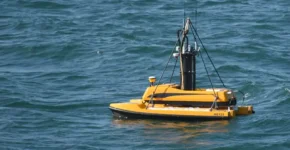



Environmental surveys are an important tool for protecting our land and our communities. They can help us to identify potential environmental hazards, assess the impact of development projects, and track the health of our natural resources.
There are many different types of environmental surveys, each with its own purpose. Some common types of environmental surveys include:

Environmental surveys can be used to protect our land and our communities in a number of ways. For example, they can be used to:
Environmental surveys are an essential tool for protecting our land and our communities. They can help us to make informed decisions about the use of our natural resources and the development of our communities.
How to Conduct an Environmental Survey
Conducting an environmental survey can be a complex process, but it is important to follow a few basic steps to ensure that the survey is accurate and effective.
The first step is to identify the purpose of the survey. What do you hope to learn from the survey? Once you know the purpose of the survey, you can begin to develop a plan.
The next step is to select the appropriate methods for collecting data. There are a variety of methods available, including sampling, monitoring, and modeling. The method you choose will depend on the specific purpose of the survey.
Once you have selected the methods for collecting data, you need to collect the data. This may involve conducting field surveys, reviewing existing data, or interviewing stakeholders.
Once you have collected the data, you need to analyze it. This involves using statistical methods to identify patterns and trends in the data.
The final step is to report the results of the survey. The report should be clear, concise, and easy to understand.
Benefits of Environmental Surveys
There are many benefits to conducting environmental surveys. These benefits include:
Conclusion
Environmental surveys are an important tool for protecting our land and our communities. They can help us to identify potential environmental hazards, assess the impact of development projects, and track the health of our natural resources. Environmental surveys are an essential part of environmental management and are essential for making informed decisions about the use of our natural resources and the development of our communities.